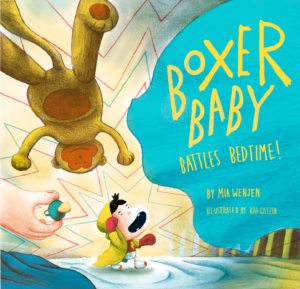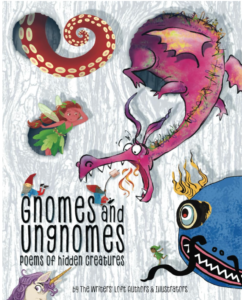Your child’s mental health plays a crucial part in their development. Having good mental health doesn’t mean lacking a diagnosed condition. It means functioning well at home, at school and in the community.
Mentally healthy children can reach physical and emotional milestones. They can also have positive social interactions with the world around them, leading to stronger mental health and self-awareness.
There are several ways to strengthen your child’s mental health and help them thrive. Here are six creative methods.
Play With Emotions
It’s important to encourage your child to express their emotions to people they trust, whether they’re happy, sad, or stressed.
Teaching young children about emotions and how to identify them is important. One way to do this is with toys and puppets they can use in play. You can draw faces on socks or bags and play with them, matching the tone and expression of the puppet’s feelings.
Children who know how to express their emotions can better communicate their wants and needs. This helps them learn to manage their feelings and respond to different situations appropriately.
Stay Active
activity is an important outlet for children to release physical and mental energy. Help your kids discover what they like to do. Running, skating, and playing on a playground benefit your child’s mental well-being.
Staying active also helps keep your child’s body healthy, contributing to positive mental health as they grow.
Getting outside or going to a play area with your child will help you bond with them, giving them further mental and emotional benefits.
Join a Playgroup
All humans need social interaction, especially children who are still new to the world. It’s great to interact with family, babysitters, and teachers. However, your kids must interact with others their age.
Children who are in school often get some of this interaction, but it’s nice to get kids together outside of an academic setting. Joining a playgroup or attending local children’s activities allows your kids to make new friends with others on a similar level.
Playing with kids their age helps children learn how to communicate, negotiate and work together. These skills are vital as your child matures and enters society with their generation.
Create a Quiet Space
Emotional regulation is a tricky thing for adults, let alone children. Sometimes, the stress of life can overwhelm your little ones.
Those moments are an excellent time to help them learn coping skills. One way to do that at home is by creating a quiet area where your child can go to take a breather or decompress.
It’s not a space for punishment, and you shouldn’t use it as a time-out. It’s an area of your home with calming items, like a comfortable chair, a journal, lighthearted books, a stuffed animal, and anything that relaxes them. A child’s room can work but often has stimulating activities that aren’t always the best for big feelings.
Your child can choose to enter that space when they feel big emotions that could lead to inappropriate behaviors. There, they can take a breath and relax before talking through the situation that made them emotional with you.
Praise the Effort
Kids need reassurance that they’re doing the right things and parents need to give them that.
It’s natural to praise children when they reach the end of a journey or task. Whether scoring a goal, performing in a recital, or taking a test, we celebrate when they get to the finish line.
This type of praise can cause your child to feel like a failure when they don’t achieve the goal, even if they’ve put in significant effort. This can negatively impact their self-esteem, making them feel incapable.
Praising the hard work your child puts in along the way ensures the effort they make toward achieving the goal is just as valuable. This helps them realize that their contributions matter, even if something doesn’t go their way.
Help Them Eat Healthy Food
Research shows that a healthy diet can positively affect a person’s mental health, including children. A balanced diet full of fruits, vegetables, and omega-3s will help your child feel better and handle stressful situations more easily.
No diet is perfect, and it can be mood-boosting to have a treat now and then. However, when these foods take up most of your child’s diet, they can increase stress, anxiety, and depression levels.
Encourage your kids to eat healthy by choosing colorful foods and finding creative ways to introduce more fruits and vegetables into their diet.
Supporting Your Children’s Mental Health
Your children rely on you to help them be physically and mentally healthy. Their mental health is critical to their development, and you should prioritize supporting them where possible. This sets them up for future wellness and enables them to be strong, functional adults.
p.s. Related posts:
FREE Teacher Classroom Kit Mental Health Support for Stressful Times
Children’s Books on Mental Health Support During Stressful Times
Asian American Youth Social Emotional Health
How To Model Healthy Lifestyle Habits To Your Children
To examine any book more closely at Indiebound or Amazon, please click on image of book.
As an Amazon and IndieBound Associate, I earn from qualifying purchases.
My books:
Food for the Future: Sustainable Farms Around the World
- Junior Library Guild Gold selection
- Selected as one of 100 Outstanding Picture Books of 2023 by dPICTUS and featured at the Bologna Children’s Book Fair
- Starred review from School Library Journal
- Chicago Library’s Best of the Best
- Imagination Soup’s 35 Best Nonfiction Books of 2023 for Kids
Amazon / Barefoot Books / Signed or Inscribed by Me











